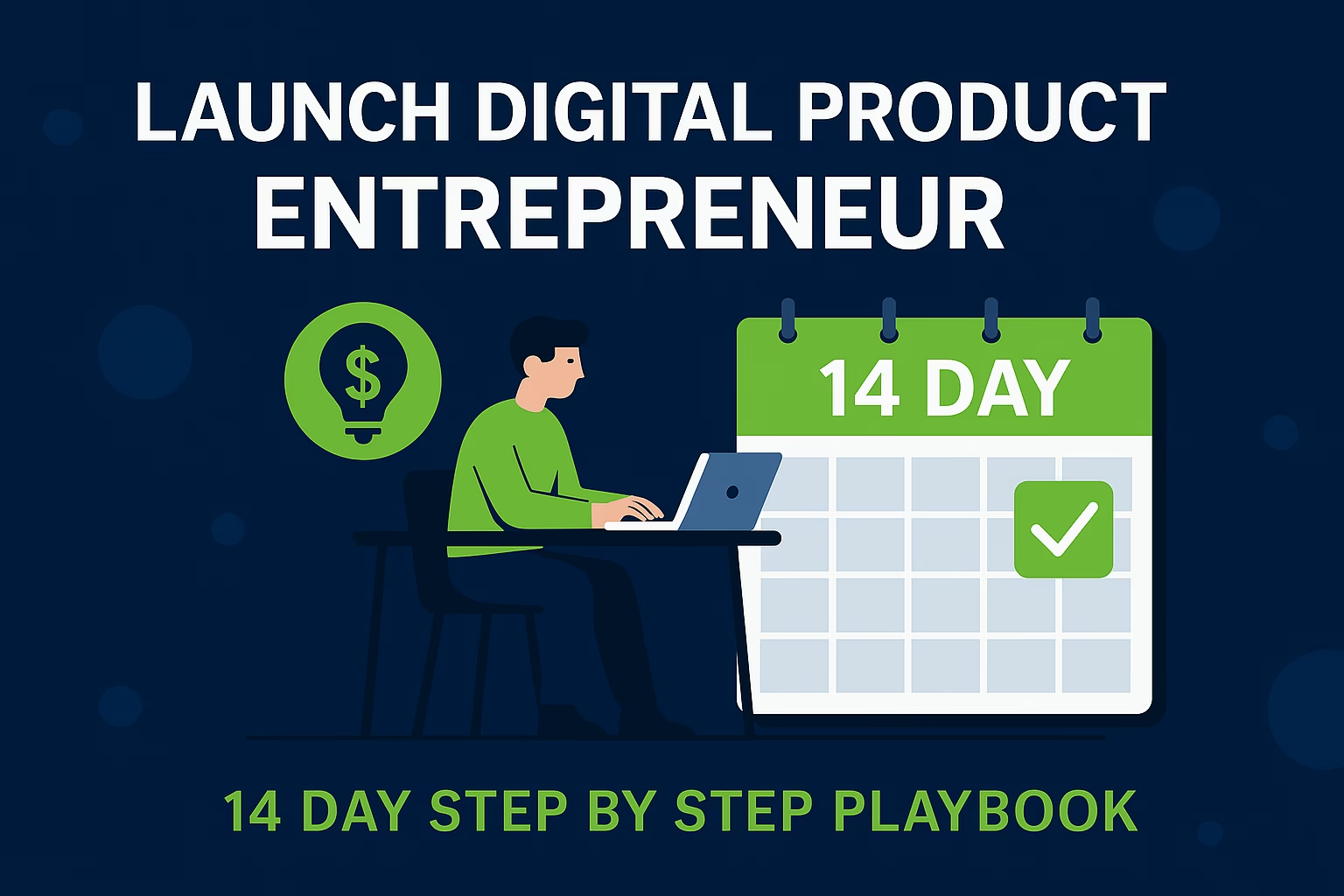Essential Steps to Launch Your Online Business Successfully

Understanding the Online Business Landscape
In recent years, the online business landscape has undergone significant transformations, driven by technological advancements and shifting consumer behaviors. The rapid growth of e-commerce demonstrates the potential of digital entrepreneurship. As of 2023, global e-commerce sales are projected to surpass $6 trillion, reflecting a substantial increase from previous years. This upward trend indicates that more entrepreneurs are capitalizing on the opportunities provided by the internet.
Several trends are shaping this dynamic environment. Firstly, the rise of mobile commerce has revolutionized how consumers shop. With smartphones becoming ubiquitous, businesses have adapted by creating mobile-friendly websites and applications. The emphasis on customer experience, personalization, and convenience is paramount, as consumers expect seamless interactions across various platforms. Moreover, social media has emerged as a vital tool for marketing and customer engagement, making it easier for businesses to reach target audiences effectively.
Another notable trend is the increasing adoption of dropshipping models among entrepreneurs. This business model minimizes inventory costs and risk, allowing start-up businesses to enter the market with relatively low overhead expenses. Furthermore, advancements in digital payment systems have facilitated smoother transactions, investing trustworthiness in online purchases. Entrepreneurs are also leveraging data analytics to understand consumer behavior better, enabling them to tailor their strategies efficiently.
The opportunities presented by digital entrepreneurship are vast. From creating niche online stores to offering digital products and services, aspiring business owners have the potential to tap into global markets without geographical limitations. The flexibility of managing an online business can lead to improved work-life balance, as many entrepreneurs can operate from anywhere with an internet connection. Therefore, understanding the online business landscape is essential for anyone considering venturing into this thriving space, as it lays the groundwork for future success.
Identifying Your Niche and Target Audience
Launching a successful online business begins with the crucial task of identifying a viable niche and understanding your target audience. Conducting thorough market research is essential, as it enables aspiring entrepreneurs to pinpoint areas of opportunity that meet consumer demand. A variety of tools and techniques can facilitate this process, allowing you to analyze both your competition and any gaps in the market that your business could fill.
One effective method for assessing consumer demand is to utilize online keyword research tools, such as Google Trends or SEMrush. These platforms provide insights into popular search terms and related queries, helping you gauge what products or services are currently trending. Additionally, examining industry reports and insights from market research firms can provide valuable data on emerging trends and potential niche markets to explore.
Understanding your competition is equally important. By conducting a competitive analysis, you can discover what other businesses in your niche are offering and how they are positioning themselves in the market. Tools like SimilarWeb or Ahrefs can be instrumental in evaluating competitor performance, their strengths, and gaps that your business can leverage to stand out. Analyzing customer reviews and feedback on competitor websites can also yield insights into consumer preferences and pain points, which can be essential when designing your own offerings.
Once you have identified a potential niche, it is imperative to define your target audience. This involves creating detailed customer personas—fictional representations of your ideal customers based on demographic and psychographic data. By outlining their needs, behaviors, and buying patterns, you can tailor your products, services, and marketing strategies effectively. Understanding your audience allows you to address their specific challenges and desires, ultimately leading to a more focused and successful online business venture.
Building a Business Plan
Creating a comprehensive business plan is a crucial step in launching a successful online business. This document serves as a roadmap, guiding the growth and decision-making processes of the enterprise. A well-structured business plan typically includes several key components, making it easier for entrepreneurs to establish their goals and strategies.
First and foremost, an executive summary is essential. It provides a condensed overview of the business, highlighting the vision, mission, and objectives. This section sets the tone and captures the interest of potential investors or partners. It should succinctly present what the business aims to achieve and how it intends to operate within the online marketplace.
The next critical element is conducting a thorough market analysis. Understanding the target audience and the competitive landscape is vital for identifying opportunities and challenges. This section should explore market trends, customer demographics, and the overall demand for the products or services offered. By gathering relevant data, entrepreneurs can develop effective strategies to position their online business advantageously.
Organizational structure is another fundamental component of a business plan. It outlines the roles and responsibilities of team members, providing clarity on how the business will function. A well-defined structure helps in streamlining operations and ensures that everyone is aligned with the company’s goals.
Moreover, marketing strategies are indispensable for attracting customers and promoting the online business. This section should detail various methods of reaching the target audience, including digital marketing, social media channels, content creation, and more. Establishing clear, actionable marketing strategies will enhance the business’s visibility and customer engagement.
Lastly, outlining funding needs and financial projections is integral for assessing the viability of the online business. This includes estimating initial startup costs, ongoing operational expenses, and expected revenue streams. A well-thought-out financial plan can provide insight into the long-term sustainability and profitability of the business.
Choosing the Right Business Model
Selecting an appropriate business model is a fundamental step in establishing a successful online venture. Various models cater to different goals, resources, and target markets, making it essential to assess each option carefully. One prevalent model is e-commerce, which involves selling physical goods through an online platform. This model allows businesses to reach a global audience and provides the advantage of scalability. However, it also includes challenges such as inventory management and shipping logistics.
Another option is subscription services, which provide products or services on a recurring basis. This model can result in steady revenue and build customer loyalty. By offering valuable content or goods that cater to specific needs, businesses can create lasting relationships with subscribers. Nevertheless, it requires consistent value delivery to minimize churn rates, which can pose a challenge for some entrepreneurs.
Affiliate marketing is another viable model, where individuals earn commissions by promoting products from other companies. This model requires minimal upfront investment and can be a low-risk way to enter the online business arena. It is particularly appealing to those who already possess a platform, such as a blog or social media following. However, success in affiliate marketing often hinges on effective strategies and the ability to generate substantial traffic.
Lastly, the digital products model entails selling intangible goods, such as eBooks, online courses, or software. This model allows for high profit margins as there are generally low production costs involved. However, creating quality digital products requires time and expertise to ensure they meet customer expectations and effectively address their needs.
In conclusion, understanding the various online business models is vital for prospective entrepreneurs. Each option presents unique advantages and challenges that can significantly impact overall success. By aligning the business model with specific goals and resources, individuals can lay a solid foundation for their online business.
Establishing Your Brand Identity
Creating a strong brand identity is foundational to the success of your online business. It acts as the first impression for potential customers and plays a significant role in shaping their perceptions and experiences with your brand. To begin, consider the design of your logo. The logo should be simple yet memorable, capable of conveying the essence of your brand at a glance. An effective logo not only enhances brand recall but also communicates your business values through its design elements.
Choosing brand colors is equally crucial, as colors evoke emotions and influence consumer behavior. Research suggests that colors can significantly impact purchasing decisions, making it essential to select a palette that aligns with the feelings you want to invoke. For instance, blue is often associated with trust and reliability, while red conveys excitement and urgency. Once you have established your colors, ensure that they are consistently applied across all platforms to reinforce your identity.
Next, focus on your unique value proposition (UVP), which articulates what sets your business apart from competitors. A well-crafted UVP should clearly communicate the benefits of your products or services and resonate with your target audience. This is where brand messaging comes into play. Your brand voice should reflect the personality of your business, whether it is formal, casual, friendly, or authoritative. Consistency in tone and style across marketing materials, such as your website, social media profiles, and advertisements, fosters familiarity and trust.
In summary, developing a cohesive brand identity encompasses logo design, color selection, unique value propositions, and brand messaging. Each element should harmonize across all platforms and touchpoints, reinforcing brand recognition and loyalty. By investing time and effort into establishing your brand identity, you set a solid foundation for long-term success in the online marketplace.
Setting Up Your Online Presence
Establishing a robust online presence is fundamental to the success of any online business. The first step in this process involves selecting an appropriate domain name that reflects the nature of your business. When choosing a domain, it is vital to ensure that it is not only relevant but also easy to remember and type. Shorter names often perform better in terms of user recall and reduce the chances of typos during web searches.
Once the domain name is secured, the next step is to choose a reliable hosting service. Hosting services provide the server space necessary to make your website accessible on the internet. Factors to consider when selecting a hosting provider include uptime reliability, customer support, and scalability options that allow your website to grow as your business expands. Utilizing providers that load pages quickly is crucial for retaining visitor interest and improving overall user experience.
After securing your domain and hosting, the actual construction of your website begins. A website should be user-friendly, aesthetically pleasing, and functional. Content management systems such as WordPress, Shopify, or Wix can facilitate the web development process, allowing users to create visually appealing layouts without extensive technical expertise. It is essential to prioritize intuitive navigation to enable visitors to find information effortlessly.
In addition to design and functionality, incorporating the fundamentals of search engine optimization (SEO) is crucial for enhancing your website’s visibility. SEO strategies entail optimizing content, including keywords that resonate with your target audience, improving site speed, and ensuring mobile compatibility. These practices not only enhance discoverability but also foster an engaging user experience that can lead to higher conversion rates.
Developing an Effective Marketing Strategy
Launching an online business requires a well-thought-out marketing strategy that effectively promotes your products or services to your targeted audience. A comprehensive marketing strategy incorporates various channels, including content marketing, social media, email marketing, search engine marketing (SEM), and pay-per-click (PPC). Each of these channels plays a vital role in enhancing visibility and engaging potential customers, thus driving conversions.
Content marketing serves as the backbone of your online presence. By creating valuable and relevant content, you establish authority in your niche and attract organic traffic. Consider devising a content calendar that highlights blog posts, infographics, videos, and podcasts, all tailored to resonate with your audience’s interests. This not only aids in enhancing brand awareness but also fosters trust and customer loyalty.
Social media marketing is another integral aspect to consider. Platforms such as Facebook, Instagram, LinkedIn, and Twitter can significantly amplify your reach. It is essential to identify which platforms your target audience frequents and tailor your messaging accordingly. Engaging with your audience through regular posts, comments, and direct messages facilitates a two-way conversation that can elevate your brand’s relationship with its customers.
Email marketing remains one of the most efficient ways to communicate directly with your audience. Building a mailing list and segmenting it based on user behavior can lead to higher engagement rates. Utilize personalized content to provide value, whether it is through newsletters, promotional offers, or product updates.
Lastly, implementing SEM and PPC campaigns can effectively drive traffic to your website. These strategies allow for targeted exposure to potential customers who are actively searching for products or services similar to yours. By optimizing for relevant keywords, you can enhance your advertising messages to ensure they align with the inquiries made by your audience.
To achieve optimal results, it is essential to create an integrated marketing plan that encompasses these various strategies while aligning with your business objectives. This ensures a cohesive approach that effectively targets and engages your identified audience.
Managing Finances and Legal Considerations
Establishing a firm financial foundation is crucial for the success of any online business. The first step in managing finances effectively is creating a comprehensive budget. This budget should account for start-up costs, ongoing operational expenses, and unexpected expenditures. By outlining expected income and expenses, business owners can make informed decisions about where to allocate resources, ensuring that cash flow remains steady. Regularly revisiting and adjusting the budget as the business evolves is equally important to adapt to the changing market landscape.
Accounting practices play a pivotal role in tracking the financial health of the business. Employing robust accounting software can streamline the process, making it easier to record transactions, monitor sales, and manage expenses. A diligent approach to bookkeeping allows entrepreneurs to identify trends, prepare for tax season, and evaluate profitability. In addition, understanding essential accounting principles will facilitate better decision-making when it comes to pricing strategies and inventory management.
Addressing the legal side of running an online business is equally imperative. Securing the necessary licenses and permits depending on the nature of the business is a prerequisite for compliance. Each jurisdiction has different regulations, so thorough research is essential to ensure adherence to local laws. Moreover, understanding tax obligations related to online sales, such as sales tax and income tax, is vital for maintaining compliance and avoiding penalties.
Furthermore, protecting intellectual property and adhering to online business regulations, such as data protection laws, should not be overlooked. Taking these legal considerations into account can help mitigate risks and enhance the reputation of the online business. Overall, a strategic approach to managing finances and addressing legal requirements will lay the groundwork for long-term success.
Scaling Your Online Business
Scaling an online business effectively requires a strategic approach that takes into account various factors that contribute to growth. One of the key elements in this process is the consistent monitoring of key performance indicators (KPIs). KPIs serve as measurable values that gauge the success of your business strategies and help identify areas that require improvement. Common KPIs include customer acquisition costs, lifetime value, and conversion rates. By analyzing these metrics, you gain invaluable insights into customer behavior and systematic weaknesses, which can inform more effective decision-making.
Another crucial aspect of scaling involves investing in Customer Relationship Management (CRM) tools. These systems allow businesses to streamline communication and engagement with customers, providing insights that enhance customer satisfaction and loyalty. With a robust CRM tool, you can track customer interactions, manage inquiries efficiently, and personalize marketing efforts. This not only fosters a deeper relationship with your customers but also allows businesses to upsell and cross-sell their products or services effectively.
Furthermore, exploring additional revenue streams can significantly bolster your online business. Diversifying your offerings enables you to tap into new markets while minimizing risks associated with dependency on a single product or service line. This could involve introducing complementary products, forming strategic partnerships, or even expanding into digital services, like consultancy or coaching, that align with your brand. As you consider scaling, it is essential to ensure that any new offering maintains the quality and values your current customers expect.
By implementing these strategies, online business owners can position themselves to achieve sustainable growth, adapt to market shifts, and meet evolving customer demands, ultimately fostering long-term success.





